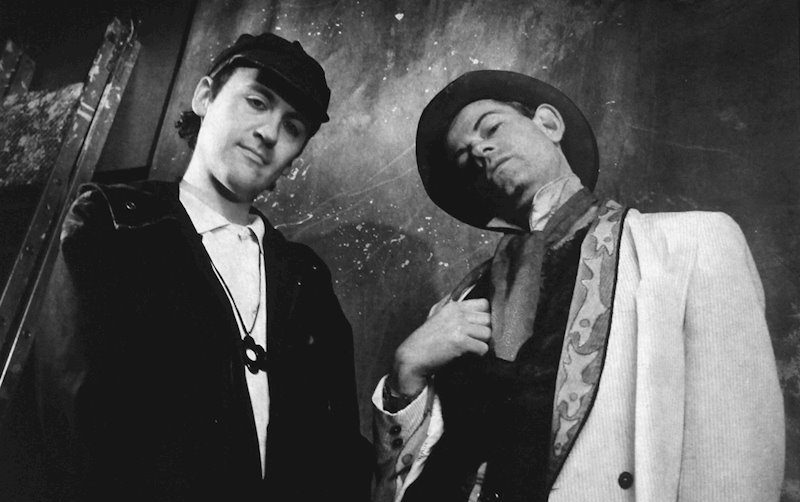Television Personalities always tested the definition of “an acquired taste”. Even the sympathetic fan sometimes had to ask: is this fragile beauty or just plain awful? Lead man Dan Treacy made the pancake-flat non-singing of contemporaries Jilted John and Jona Lewie sound like Pavarotti, and production values rarely rose beyond suburban box bedroom. But while a similarly contrary and idiosyncratic character like Mark E. Smith has somehow grizzled away into the living legend he is today, TVP remain a niche affair. Treacy ended up doing time for shop-lifting to fuel a drug habit and now heart-breakingly lives in a nursing home, recouperating from a blood clot on the brain suffered in 2011. It’s a sad trajectory which has kept his occasional flashes of lo-fi brilliance, as seen on these lost 1989/90 recordings, from a wider audience.
In case the title didn’t make it explicit enough, Treacy’s lot is not an entirely happy one. Way before admitting to mental health difficulties became commonplace, even voguish, among musicians, here is Treacy, not for the first or last time oversharing: “I’m having my very first nervous breakdown” is the refrain on the song of the same name. “If I can’t have you, I think I may as well die,” he sings on I Don’t Want To Live This Life, and it doesn’t sound like empty emo posturing. On Razor Blades and Lemonade: “I reminisce with the razor blade, against my wrist, and it’s lovely, sparkling and cold, because it’s been in the fridge.”
Set against such delicate backdrops, the effect isn’t melodramatic, it’s simple, pure and honest, the raw soul-baring of a man compelled. Not for nothing is one of TVP’s most famous songs called I Know Where Syd Barrett Lives. The parallels with the Floyd man are striking; that sense of intruding on someone who is too delicate for the real world is ever-present. Things get classically Barrettian with Goodnight Mister Spaceman: “It’s often said that I’m not all there / but I just think you’re a bit of a square”.
Various of these songs surfaced on 1992’s Closer to God, but in different forms. The aforementioned Razor Blades and Lemonade reveals it was played with an autoharp before the bluesy sax and melodica were swapped in. Honey For The Bears was REM-y strum before it was Teenage Fanclub-y fuzz.
The songs benefit from such sparse instrumentation. As soon as anything approaching rock guitar comes near them, as on the previously unreleased I Like That In A Girl (which includes a Brummy accent, apparently in tribute to Lawrence from Felt), something is lost. It’s better when the guitars tootle around in the background, as on the weary I Get Frightened Too. The autoharp resurfaces on the title track and it’s a good setting for the vocals.
News from the TVP camp does not sound particularly positive. Jowe Head, his collaborator on this album, apparently pays regular visits to Treacy, who hopes to record again. But the absence of other information is a worry for fans. This album fills a hole and reveals how when the world was turning Madchester, Treacy kept true to his own fascinating wayward path, but it’s small recompense for not having him back making new music.
